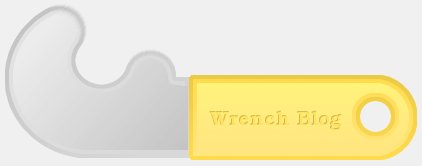Our Flex has had a noise in the rear for some time now. When we bought it, used, a couple years ago, it
had a bit of a noise and it always sounded like tire noise to me. This year we replaced the tires... and
if you'll allow me to go off on a bit of a tangent, I ordered them from the Tire Rack, as usual. I ended
up going with Continental TrueContact SL. They weren't cheap, but they were not as expensive as many of
the good sounding alternatives. My primary demands from the tires were good tread life, and a quiet ride.
The Flex was engineered to be a quiet, comfortable ride... I did not want noisy tires to spoil that. Back
on topic, after replacing the tires, the noise was still present... and I was quite surprised by that.
At this point, given the way that the noise changed (got better/worse) as one side of the vehicle or the
other was loaded up during cornering, it really was behaving like a bad wheel bearing... except it didn't
sound like any wheel bearing noise I had ever heard. It was almost like the sound of a baseball card stuck
in your bicycle wheel spokes, but very deep and rumbling. Some online research pretty quickly revealed
that Flexs are prone to wheel bearing problems. The forums are full of people having to replace noisy
wheel bearings within 20,000 miles. Some of the noises described sounded similar to what I was hearing.
Our Flex has 117,000 miles so I can't really complain about some bad bearings at this point. I ordered a
pair of rear wheel bearings (the rears and fronts are actually the same) from RockAuto.com, and one of
them was completely seized, upon arrival. Not impressive quality there. RockAuto are wonderful about returns
and I had a replacement in a flash.
From what I had read about the procedure for removing the rear wheel bearings, they were held in place by
large Torx bolts (I believe I saw T60 mentioned somewhere), but that the bolts were nearly inaccessible due
to the ABS sensor rings being in the way. The thing to do, apparently, is to press a torx bit out of its
socket, and grind down the rear of it to clear the sensor rings, then use a wrench on the remaining flats
of the torx bit. Well I'm happy to say that it was not necessary on our Flex. Our wheel bearings were
held in place with regular hex bolts, and there are no rear ABS rings in the way. Our wheel hubs have the
ABS sensors mounted into them, but I've no idea what they're picking up on because I see no trace of a
sensor ring or trigger wheel. This was still not exactly an easy job, because the car has spent 100,000
miles in New England, and the wheel hubs are aluminum, the bearing housings were corroded in place like
you wouldn't believe (or maybe you would, if you live up this way).
Before you attempt this job, verify whether you have torx bolts or hex bolts, and whether you have ABS sensor
rings in the way of them. Also make sure you have a socket large enough to fit the axle nut, and deep
enough to clear the threaded axle coming through the nut. If you're an amateur machinist, you may find
yourself tempted to clearance the bottom of a regular socket... don't bother, I tried that and it just
won't work out. You'll need a deep 32mm socket... 1 1/4" will actually be a closer fit, and that's what
I ended up using. Even if you have a deep socket, you need to make sure that the hex flats seat fully all
the way up onto the nut. The nuts are fairly shallow, and most sockets (especially cheap ones) have a
lot of relief leading into the internal hex flats. I took my deep 1 1/4" socket, chucked it into my lathe,
and faced the hex end to remove all the relief. That ended up being about 3/16". Without doing this, the
socket barely gripped the nut. Here is my deep socket, after being turned on the lathe, so you can see
what I mean:

With the axle nut removed, and the brake disc, caliper, and carrier bracket out of the way, the bearing assembly
can be removed... in theory. I ended up using a small puller (it was just barely big enough) to put as much
force as I could against the bearing housing, and then I heated up the wheel hub (or "knuckle", or whatever
you want to call it) with a torch. I also used some good penetrating oil. Be careful of those rubber bushings
that are all around, and definitely get your ABS sensor out of the way first. One side only took a couple of
minutes of heating before it popped free. The other side took much more persuasion, I ended up setting up
the torch with the trigger locked in, pointed at the bottom of the housing, then sat and watched it while I
enjoyed a beverage. About 7 minutes later, *BANG*, the bearing housing popped free. Here are a couple of pics
showing the puller arrangement I used... nothing fancy:


And a couple of pics showing the corrosion around the bearing housings, the first one is just after the bearing
assembly popped loose, and the second one shows the wheel hub with the bearing housing removed, and here you can
really see how the corrosion has built up. Be sure to clean up the surfaces really well before installing the new
bearings. The new bearings should be a very easy fit within the hubs.


We now have a nice, quiet Flex!
Post your comments below. Please note that your comments will not be visible until
they have been approved by a moderator (me).

